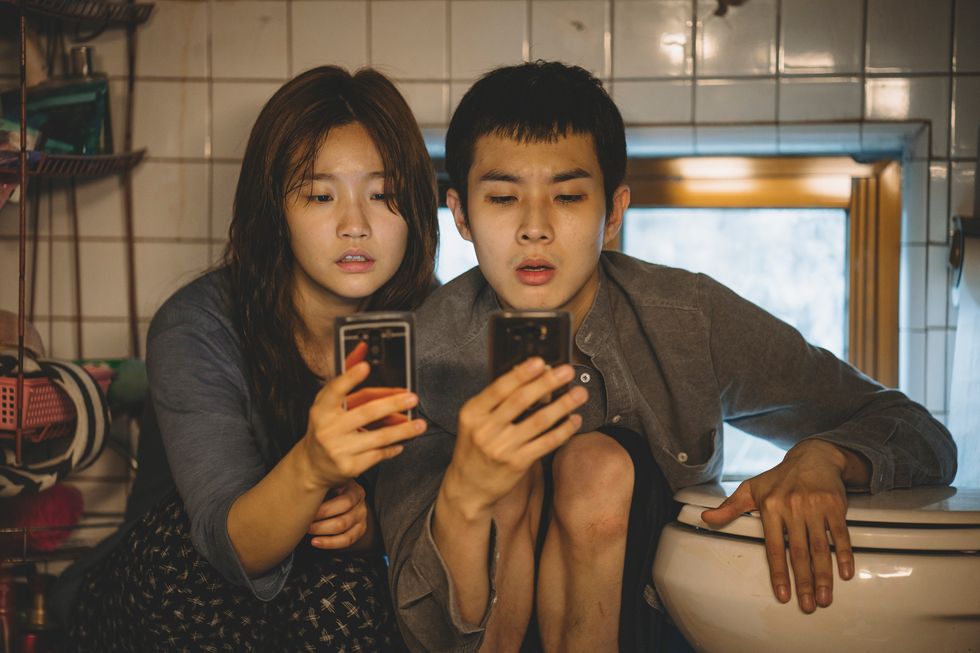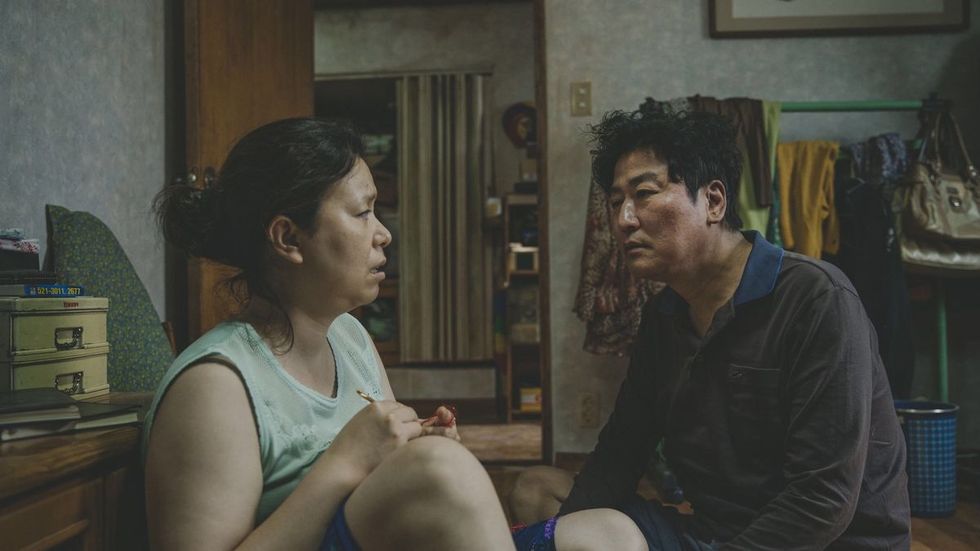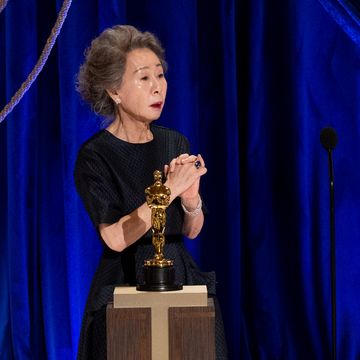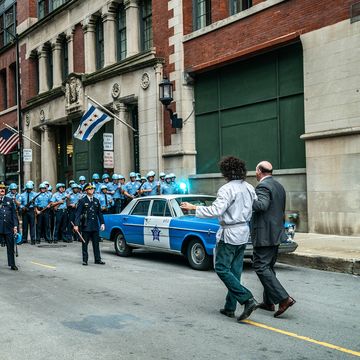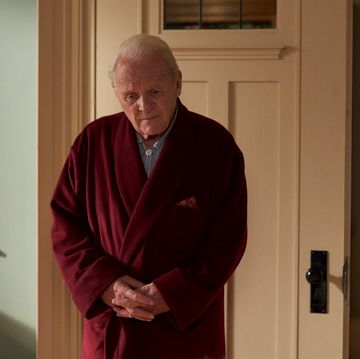The following article contains spoilers for Parasite
Bong Joon-Ho's Parasite is a jet black satire of class conflict and wealth inequality; a leech which hungrily sucks until it has no choice but to explode and spray blood everywhere.
It follows the wealthy Park family as their beautiful glass box of a house is slowly infiltrated as the poor Kim family trick their gullible counterparts into giving them jobs in their home. 'Act like you own the place' goes the film's tagline, and we see this play out as the Kim's greed takes over, allowing them no way out until it's too late.
We reach the crescendo of the film when the Park family go on a camping trip and the Kim family let the former housekeeper Moon-gwang into the house, discovering that her husband Geun-se has been living in the basement to hide from loan sharks who are after him. The situation escalates after the couple discover the Kim family have also been conning the Park family by pretending to be strangers rather than one family. In their scramble to straighten the house up before the Parks arrive home, Moon-gwang is injured after falling down the stairs.
The following day, at the Park son's birthday party, a grief-maddened Geun-se escapes from the basement, bludgeons Kim Ki-woo and kills his sister Ki-jung. The Kim family patriarch then reacts to the Park family father recoiling at the “poor man’s smell” of Geun-se by killing him then escaping.
After his son Kim Ki-woo awakens in hospital, he returns to the house to see a light flashing, remembering how Geun-se used to use it to send Morse code signals from the basement. He translates the flashes into a letter from his father in which he details his escape and how he found shelter in the Park's basement. Kim Ki-woo then works until he can buy the house for himself and be reunited with his father, the idea that all Mr Kim will have to do is walk up the stairs and into the sun gives Parasite a fairytale ending, briefly.
We then cut to Kim Ki-woo still in the basement of the run-down house, the naive idea that he could work his way out of his class imprisonment suddenly as foolish as the Park family inviting strangers into their home.
“It’s a surefire kill,” the director told Vulture in reference to the ending, referring to a Korean phrase for a gunshot that makes sure someone is definitely dead. Here what is definitely dead is the hope that a bad hand in life can be overturned, or that the constraints of class can be broken out of. This hope can both sustain and torture us, but Joon-Ho exposes it as a lie.
He continues: “Maybe if the movie ended where they hug and fades out, the audience can imagine, ‘Oh, it’s impossible to buy that house,’ but the camera goes down to that half-basement,” he says. “It’s quite cruel and sad, but I thought it was being real and honest with the audience. You know and I know — we all know that this kid isn’t going to be able to buy that house. I just felt that frankness was right for the film, even though it’s sad.”
The closing moments of the film hark back to the the opening where we saw the Kim family in their cramped, damp basement which feels like a prison. What has transpired since allowed them to, albeit briefly, escape, but now those that are left are trapped back there again. Joon-Ho has called the film his “stairway movie”, meaning that the film gives us all of the different steps of class aspiration and shows us how, for some people, trying to climb to the top only results in you being kicked down to the bottom again. In the same way that the couple living in the Park family's basement are trapped below them and only want to be able to walk up the stairs, the Kim family look up at street-level to where they want to rise to.
In letting Kim Ki-woo narrate his rise up the stairway, only to throw him back down it again, Joon-Ho is dashing our hopes that he has escaped from the basement as we watch reality come crashing down. While the film encourages us to judge the materialistic and gullible Park family, it doesn't allow us the the fairytale of seeing the villains overthrown. When the Parks leave the magisterial glass house, it won't be the Kims that claim it, but a German equivalent of the Park family. There is a circle protecting the wealthy that loops forevermore.
This level of frankness with the audience is a deadpan moment which pulls you out of the comical farce you have been watching unravel. Here is the wretched statement the film has been slowly but surely worming its way toward, and the director is being honest with the audience in a way that feels unbearably real after we have been allowed to get our imaginations go wild. “There are people who are fighting hard to change society. I like those people, and I’m always rooting for them, but making the audience feel something naked and raw is one of the greatest powers of cinema,” Joon-Ho says.
The ending of Parasite gives its most gnawing and lasting feeling, reminding us that the amusing trickery and funny dialogue have been distracting us from this sad truth. Kim Ki-woo returning to the house as its owner would be a dreamlike way to end Parasite, but his waking up from the dream reminds us the nightmare is real.
Like this article? Sign up to our newsletter to get more delivered straight to your inbox

